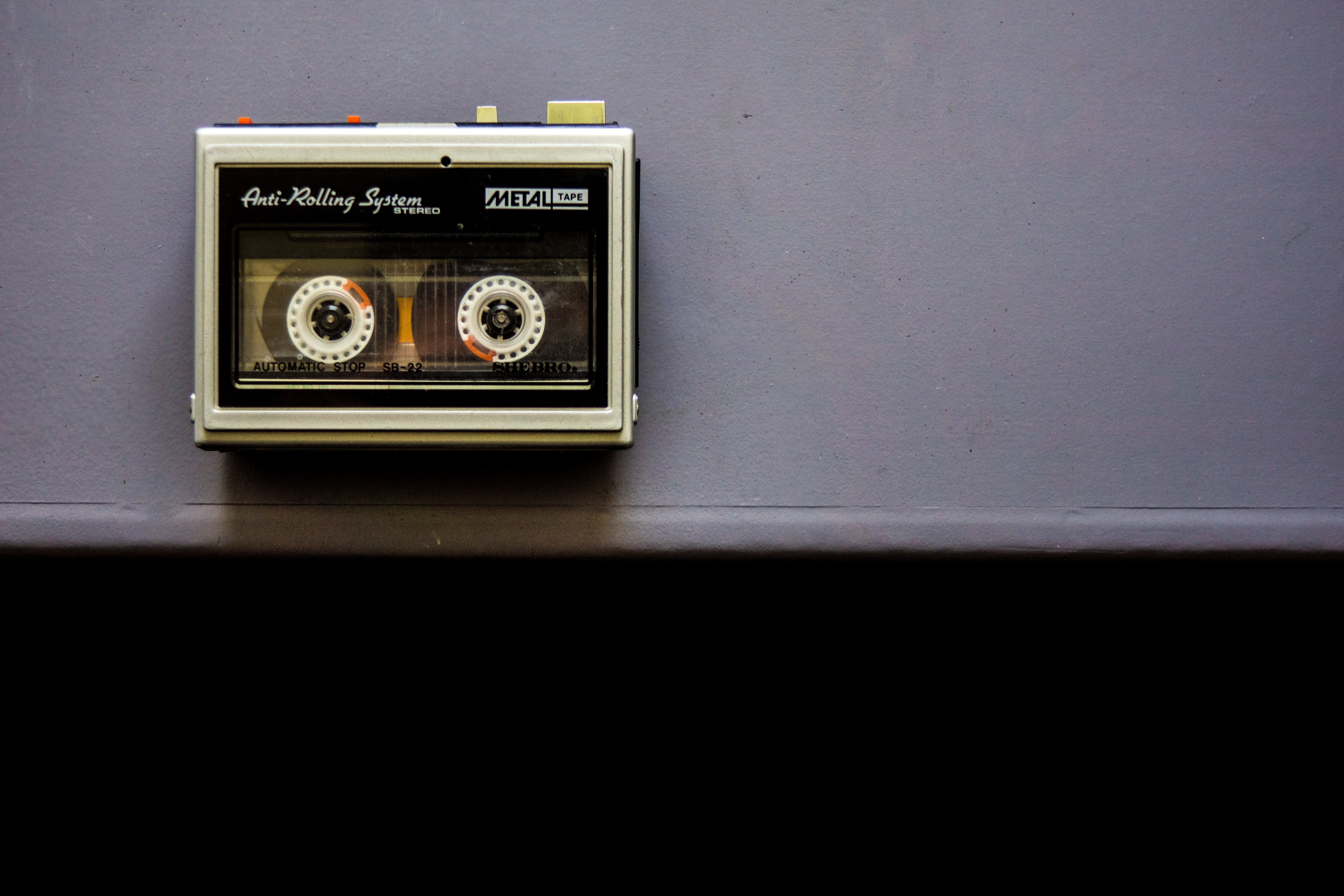Have you ever heard a recording of your voice? It’s weird. I’m not saying your voice is weird (well, it could be), but it’s a weird experience. You have a mental recording of what you think you sound like in your head, but it’s completely different when you actually hear it played back.
Now, on top of that, have you ever heard your own voice when you’re answering interview questions?
Super awkward. At least it was for me.
Right before I applied to Dropbox, I was applying to my Tier 2 companies for interview practice (if you don’t know that I’m talking about, see this post), but I kept bombing my phone interviews.
My friend, Nick, offered to do a mock interview with me to see if he could help.
His one and only piece of feedback completely changed my interview success rate. He said,
“Your answers are fine, but you sound really insecure. Your voice doesn’t inspire any confidence you’d do the job well.”

This blew my mind. I had no idea my voice was an issue or something I should even consider thinking about. I didn’t believe Nick at first, but then we voice recorded another mock interview, it was immediately clear. I sounded extremely insecure and often defensive. I had to fix this.
I started voice recording my practice mock interview sessions and it was a game changer. You should do this if you haven’t!
You’ll learn a lot just from one voice recording. You’ll hear how you structure your answers, if you ramble, if you use filler words or phrases (“like”, “um”, “you know”) too often, and if your voice sounds insecure. Maybe you don’t have a problem with sounding insecure, but there could be something else in your voice or phrasing that distracts from the content of your answers.
After recording myself, here are the three things I noticed in my voice that made me sound insecure and how I went about addressing them.
1. My final sentence of an answer sounded like a question.
Most times I finished answering a question, my voice raised an octave, like I was asking a question. I would say something like, “I oversaw this project and it really helped improve our processes(?)”
I was so focused on saying the right things and trying to remember all of the answers I prepared that it was almost as if I was seeking approval for my answers. I would have never noticed this had I not voice recorded myself.
In order to fix this, I focused on making declarative statements and visualized literally putting a period at the end of my spoken sentences.
“I oversaw this project and it made our processes two times more efficient (period).” Or, “My analysis indicated there was a problem with the sign up flow (period).”
Having this mental imagine also made me include a brief pause after every statement which was helpful because I also found that I was speaking so fast. Which was my next realization…
2. I was speaking extremely fast because I wanted to spit out every piece of relevant information.
A lot of people struggle with speaking too fast and there could be many reasons why. When I replayed my voice recording multiple times, I figured out I was talking so fast because I was insecure about making sure I said everything I wanted. It was almost like I was talking at the interviewer (in this case, Nick, my mock interviewer), not with him.
Trying to say every detail about a situation or every achievement related to a project made me come off as overbearing at best and at worst, very defensive. My answers came off like justifications, especially for questions that dealt with conflict like, “Tell me about a time you had a difficult working relationship with a team member.”
My rush to caveat my answers, provide very specific details about the situation, and rush through telling the interviewer what my thought process was just too much. Listening to the voice recording of my answer was overwhelming even for myself.
To help prevent me from speaking too fast, I wrote out, word for word, answers to common interview questions like, “Walk me through your resume” and “Tell me about a project you’re proud of.” I didn’t hold back on what I wanted to say and wrote down how I thought I would best answer these questions. Then, I cut down the word count by 50%.
This sounds drastic and maybe impossible, but if you have a problem with speaking too fast because you’re trying to say every relevant piece of info, try this. Maybe you don’t need to cut the number of words by half, but maybe 25%. Regardless, it will be a great exercise to help you get to the essence and the actual critical details of the stories you want to tell in your interviews.
Also, I had a little mantra I would remind myself, “Just slow the f**k down 😊.”
3. I rambled about the context of a situation versus actually answering the question.
For questions like, “Tell me how you’ve resolved a conflict with a difficult teammate”, I would spend most of the time building up the context and describing the situation versus telling how I actually resolved the conflict.
To answer that type of question, I tried using the STAR (Situation, Task, Action, Result) method to answer interview questions (Google it if you haven’t heard of it), but I would spend way too much time talking about the Situation.
After hearing my rambling answers, I focused on answering the actual question at a high level first (the Action part of STAR), then providing context.
So for the conflict question, with my new approach, I would answer it by first saying, “I resolved a conflict with one of the engineers on my team about timelines by first trying to understand where she was coming from and then coming up with tradeoffs based on what was most important to the two of us.” Then, I would go on and describe the situation.
Saying this first gives both the interviewer and you an anchor for your answer. For the interviewer, they get a glimpse of what you actually did in the situation and for yourself, it provides a framing so you don’t veer off track on irrelevant details when you explain the context.
For behavioral/situational interview questions focus on answering what you did in the situation in the first 2-3 sentences. Ultimately, the interviewer wants to know how you affected change, the interview is about you!

Voice record yourself!
It was eye-opening (or ear-opening?) hearing a recording of myself answering interview questions. Had I not done so, I would have never known my answers sounded insecure, defensive, and not confident because of the way I talked. By recording myself, I was able to make the most of the time I had to prepare for my interviews because I discovered what I needed to work on.
All this to say, try voice recording yourself during a mock interview with a friend. I guarantee you’ll immediately learn what you need to improve!
